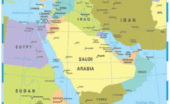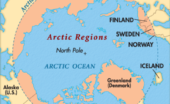Molly Minturn - My family is heartbroken to share that my father died in surgery on Monday, Feb. 10. It…
Wednesday Night #1853
Written by Diana Thebaud Nicholson // September 12, 2017 // Wednesday Nights // Comments Off on Wednesday Night #1853
Another Great Montrealer has left us, Former McGill chancellor and prominent Montreal journalist Gretta Chambers dies at 90. “When you think about what we need in Quebec, she embodied it,” Sylvia Martin-Laforge, director general of the QCGN, said Saturday. “She embodied the bridge building between the minority and majority communities. She was way before her time. … I remember Mrs. Chambers as a grande dame for Quebec.” Indeed! The funeral will be held at 11 o’clock on Saturday, September 16 at Saint Léon de Westmount.
Did anyone note the irony of the Intergovernmental Panel on Climate Change (IPCC) meeting in Montreal at the height of concerns over the trail of destruction of Irma and the earthquake in Mexico?
There is no question that reporting on Harvey, Irma and the Mexican earthquake has been excellent. Now, while other assess the damage and its cost to individuals and the economy, several writers have turned to more philosophical issues.
On Quest, Ingrid Burrington examines We rely on the internet during a crisis. So what if the next crisis threatens the internet? She draws the direct line between Technology as a logistics problem and Logistics as an equality problem, concluding that “The work of technologists and activists in this particular moment requires a careful, crucial balancing act: to use technology to simultaneously attend to the real-time urgent needs of day-to-day crisis while demanding and building something more than a politics of perpetual triage.”
David Leonhardt of the New York Times reflects on why so many members of the media have been willing to accept the pronouncement by Scott Pruitt the climate-change-denying head of the E.P.A., that it was “misplaced” and “very, very insensitive” to talk about climate change in the wake of an extreme storm. His colleague David Brooks, meanwhile, waxes entertainingly biblical in Harvey, Irma, Jose … and Noah
Paul Krugman writes (in sorrow and anger) in Conspiracies, Corruption and Climate, “The bottom line is that we are now ruled by people who are completely alienated not just from the scientific community, but from the scientific idea — the notion that objective assessment of evidence is the way to understand the world. And this willful ignorance is deeply frightening. Indeed, it may end up destroying civilization.”
And Joseph E. Stiglitz argues that Hurricane Harvey raises deep questions about America’s economic system and politics. “Effective government investments and strong regulations are needed to ensure each of these outcomes, regardless of the prevailing political culture in Texas and elsewhere. Without adequate regulations, individuals and firms have no incentive to take adequate precautions, because they know that much of the cost of extreme events will be borne by others.” Learning from Harvey
Wednesday Night authors have also been busy.
David Kilgour reminds us that Merkel [is] the ‘Indispensable European’, and “her re-election as Germany’s chancellor for the fourth time on September 24 is important for Germans, Europeans, and many democratic nations around the world, partly because of regional and other international misfeasance by Russia’s Vladimir Putin.” David Jones takes a slightly different tack in Merkel and Germany’s Global Role
In Statuary rape, David T. Jones casts a critical eye (albeit, to mix metaphors, with tongue delicately placed in cheek) on the revisionist movement to take down any and all statues, memorials, etc. that offend anyone’s political correctness. He makes some good points, notably in his conclusion that “History isn’t pretty. But instead of hiding it, perhaps we would all do well to educate ourselves about the ugliness behind some of what is staring us in the face and pledge to “never forget.”
We assume everyone is aware that Amazon is looking for a second HQ and the bidding wars are starting. CNN has identified 8 cities fit for Amazon’s second headquarters, including Toronto. The Atlantic has prepared its own Ultimate List of Top Contenders for Amazon’s HQ2 and again, Toronto makes the cut. But the negatives include “moving to Canada doesn’t seem to be in Bezos’ best interests: the company would be opening itself up to a 15 percent foreign buyer’s tax, amid a host of other legal and regulatory challenges associated with being a bi-national firm. Locating up north might also be a bad move for a company sparring with US lawmakers, and emphasizing its identity as an American brand.”
Despite these and other analyses, Céline Cooper believes that Montreal has much to offer Amazon as HQ2, that among cities vying to be Amazon’s second headquarters, Montreal could be a strong candidate, but Bill 101 rules stand to complicate matters.
She adds that before Mayor Coderre flings money at making a bid, there are some other issues to be addressed. One of Amazon’s requirements is proximity to good schools; given the outcome of the PQ policy convention on funding English-language CEGEPs, there might be a bit of a problem unless all Amazon workers are super keen to have their kids educated in French.
One of our favorite writers, Tracey Ariel, is embarking on a new career. She writes: “I’m running for a seat on Verdun’s borough council with Verdun Mayor Jean-Francois Parenteau in the upcoming election. I have the right to six tickets for a cocktail with Denis Coderre on September 22 in exchange for a $100 donation to my campaign. Are you interested in attending this cocktail?
‘Even if you can’t attend, I hope you’ll support my campaign to help me get into the room where key decisions about our city are made. Montreal and Verdun have been fortunate to benefit from Denis’ and Jean-Francois’ leadership over the past four years and I want to help them both get re-elected.’ Some of us might pay $100 to not have cocktails with Denis Coderre, but that doesn’t dampen our enthusiasm for Tracey’s campaign.
Reaction to Donald Trump’s surprise deal with the Democrats – what is referred to as the Pelosi-Schumer-Trump deal- has exposed the flaws in the system. While many lawmakers rallied behind the speaker and directed their anger at the White House over the debt deal, others refer to a setback for the Republican Party. It is reported that Treasury Secretary Steven Mnuchin and budget director Mick Mulvaney were booed when they came to Capitol Hill to plead with Republicans to support the deal. Setback? At a critical moment for disaster relief, it is a setback that the president worked with the opposition leaders to ensure passage of a critical piece of legislation for the benefit of millions of citizens?
As the NAFTA negotiators take a break, before resuming talks in Ottawa from Sept. 23-27, there is much ado about the Canada-U.S.dimension (including concerns that Canadian mayors risk becoming pawns in Amazon’s NAFTA power play), but little mention of sentiment in Mexico where, despite decades of anti-American sentiment, since “the signing of [NAFTA], this anti-U.S. sentiment has faded—gone dormant, even. Mexicans have grown used to trading with the U.S., and the Mexican government has managed to convince its people that cooperation with the U.S. is better than antagonism.” But, with the barrage of insults from the White House, the era of good feeling has evaporated. You Won’t Like Mexico When It’s Angry –President Trump’s insults are pushing the Mexican political system into dangerous territory.
There is a somewhat bizarre and troubling story about the drug company, Allergan, which is paying the Saint Regis Mohawk Tribe to protect patents from challenges. Counsel to the Tribe was interviewed on Tuesday on As It Happens, but no transcript is currently available. The story is that Allergan will transfer the rights to Restasis dry-eye treatment in an unusual deal to protect it from patent challenges. The tribe, which has sovereign immunity from such challenges, will receive a one-time payment of $13.75 million and annual royalties of around $15 million under the arrangement proposed by the Saint Regis. There will no doubt be serious challenges to this manoeuvre; as Reuters says in a follow-on story U.S. tribal patent deal could have big impact on generic drug market
Have you been following the fascinating Facebook/Russia story?
How Facebook Changed the Spy Game
Any doubt that Russia has been running a strategically targeted disinformation campaign in the United States was erased [last] Wednesday, when Facebook revealed that it had deleted 470 “inauthentic” accounts that were based in Russia and had paid $100,000 to promote divisive ads during the 2016 presidential election.
Exclusive: Russia Used Facebook Events to Organize Anti-Immigrant Rallies on U.S. Soil
Russian operatives hiding behind false identities used Facebook’s event-management tool to remotely organize and promote political protests in the U.S., including an August 2016 anti-immigrant, anti-Muslim rally in Idaho, The Daily Beast has learned.
A Facebook spokesperson confirmed to The Daily Beast that the social-media giant “shut down several promoted events as part of the takedown we described last week.” The company declined to elaborate, except to confirm that the events were promoted with paid ads. (This is the first time the social-media giant has publicly acknowledged the existence of such events.)
And this was back in April:
Facebook Data ‘Does Not Contradict’ Intelligence on Russia Meddling
The social platform says it has a problem with government-run efforts to manipulate public opinion.
Facebook says it detected several “subtle and insidious” kinds of coordinated attempts to harm the reputation of “specific political targets” during the 2016 campaign, describing “malicious actors leveraging conventional and social media to share information stolen from other sources, such as email accounts, with the intent of harming the reputation of specific political targets.” Spokespeople for Facebook declined to answer my questions about which political target and stolen email information the Facebook report was referring to, but the intelligence report that Facebook links to describes “high confidence” in the assessment that Russian intelligence relayed hacked emails between senior Democratic officials to WikiLeaks to undermine Clinton.
Stay tuned for more on this and other news.



